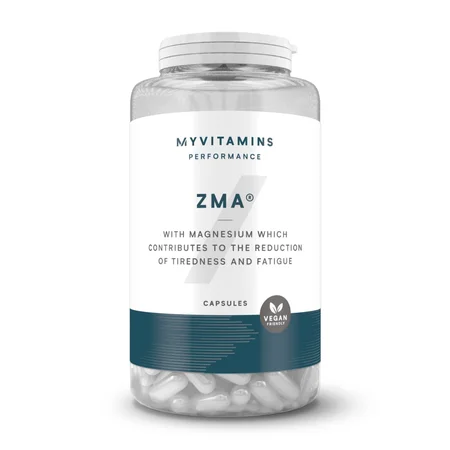What Are The Best Supplements For Sleep?

From enduring extended periods of chronic sleep deprivation to times and periods when I’ve diligently tracked my sleep and made it a cornerstone priority of my health, I’ve been on quite the journey when it comes to sleep.
If you’ve experienced something similar, you’ll know why prioritising a rejuvenating sleep every evening is a no-brainer. Fortunately, there are many things you can do to help you get a deep eight hours every evening, including trying out different sleep supplements.
- Why is sleep important?
- How to set yourself up for a good night’s sleep
- Supplements to improve sleep quality

Why is sleep important?
Not even a thousand pages would be enough to fully answer this question, so i’ll save you the hassle and cover only the most important.
1. Memory consolidation and learning
During sleep, particularly in the REM and deep stages, the brain processes and stores information from the day, turning short-term memories into long-term ones. Studies show a 20% increase in recall of information after a full night’s sleep.1
2. Removal of brain toxins
The glymphatic system, discovered only in the previous decade, is the brain’s own waste removal system. It is activated during sleep and flushes out metabolic waste, including those linked to degenerative brain conditions.
3. Immune system strengthening
Sleep boosts the production of cytokines, immune proteins that fight infection and inflammation. This might be one reason why people who sleep less than six hours per night are more likely to catch the common cold.2
4. Blood sugar and metabolism regulation
14% of the global population suffers from diabetes, a condition of impaired blood sugar regulation that can lead to serious complications like heart disease and nerve damage. Poor sleep worsens this by increasing insulin resistance and disrupting hormones that control blood sugar and appetite.
5. Cardiovascular health
Studies show that night shift workers with irregular sleep patterns are at a higher risk of developing serious health problems. This might be because poor sleep impairs the body’s ability to repair and maintain cardiovascular function, leading to increased risk of hypertension.
6. Emotional stability and stress management
Sleep helps maintain emotional stability by regulating activity in the amygdala (the fear centre) and strengthening connections with the prefrontal cortex (the decision-making centre).
Lack of sleep disrupts this balance, amplifying stress and anxiety. Just one night of sleep deprivation can increase amygdala activity by up to 60%, potentially triggering mood swings and heightened emotional responses.3
7. Hormonal and sexual health
Sleep supports the production of hormones like testosterone and oestrogen, critical for reproductive health, mood and libido.
8. Physical recovery and athletic performance
As an amateur athlete, I feel this one the most. My body aches if I don’t get my full eight or nine hours. During deep sleep, the body repairs muscles and tissues, with growth hormones predominantly secreted during this phase.

Top 10 Sleep Methods Tried and Tested
From sleeping in the buff to the most talked about supplements.
How to set yourself up for a good night’s sleep
What is “good” sleep?
- Sleep duration: most adults require 7-9 hours of sleep per night.
- Sleep consistency: your circadian rhythm, essentially your body clock, runs on consistent sleep and wake times.
- Sleep stages and proportions: sleep cycles consist of REM and non-rem stages, each is vital for restoration. These cycles alternate throughout the night around every 90 minutes or so, although REM cycles tend to get longer as the night goes on.
Caffeine and stimulants
As much as I love an evening coffee, its impact on my ability to fall asleep as well as quality is undeniable. A study published in the journal of clinical sleep medicine backs this up, finding that consuming caffeine, even six hours before bed, can significantly disrupt sleep, increasing sleep onset latency by 14.4 minutes and reducing total sleep time by up to 54 minutes.4

10 Best Vitamins & Supplements For Energy
Falling asleep at your desk? We're here to help.
Screen time
While blue light may not be as disruptive to sleep as once believed, spending time on your phone watching stimulating content late at night can still affect your ability to fall asleep.5 instead, use the period before bedtime to wind down so you feel tired when it is time to go to bed.
Environment
- Darkness: the darker, the better, as even small amounts of light signal to the nervous system that it’s not yet time for sleep. Use blackout curtains or an eye mask — just be sure to get one with a comfortable strap!
- Noise control: irregular noise can cause sleep quality disruption even if you don’t fully wake up. White noise machines also work great for some people.
- Temperature: try to keep your room temperature between 16-20C (60-68F). Cooler environments promote deeper sleep by supporting the body’s natural drop in core temperature.
- Purpose: your bed is for sleeping in… so keep it that way. The brain likes to link areas with functions, so if you spend prolonged periods of the day in or around bed, this association can become confused.
Foods to avoid
- Caffeine: avoid coffee and energy drinks after midday if you’re sensitive. Some medication also contains caffeine, so check the label before taking.
- Alcohol & other substances: can disrupt REM sleep despite aiding sleep onset. Long-term use can reduce sleep quality and lead to insomnia.
- Sugary foods: blood sugar spikes and crashes can cause waking up in the middle of the night. To stabilise your levels, choose balanced meals with protein, healthy fats and complex carbs.
Supplements to improve sleep quality
Magnesium
Magnesium is an incredibly important nutrient for sleep as it regulates key neurotransmitters — like GABA, which calms the nervous system — and supports the release of melatonin. It also helps relax muscles, reduces cortisol levels and encourages deep sleep by promoting slow-wave brain activity.
Reishi mushroom gummies
Reishi mushrooms, believed to have calming properties, are traditionally used for relieving stress. Because of this, it may be a useful supplement for helping sleep, although evidence for its specific impact is still emerging.
Sleep capsules
Containing a blend of magnesium, l-theanine, and l-tryptophan and other vitamins and minerals, sleep capsules are designed to support relaxation.
Higher magnesium levels have been associated with better sleep quality, while magnesium taken alongside l-theanine has been shown to promote sleep in animal studies.6
L-tryptophan serves as both a precursor to serotonin and melatonin, two hormones that play a key role in sleep.
Ashwagandha capsules
A well-studied adaptogen, ashwagandha helps reduce stress and anxiety, promoting a calmer mind which can lead to easier sleep.7 recent studies also suggest it may improve sleep onset and total sleep time in individuals with chronic insomnia.
Take home message
Quality sleep is essential for overall wellbeing. While supplements like melatonin, magnesium and ashwagandha can support sleep, they should complement, not replace, good habits.
Identify specific challenges and your body and mind will thank you. It might simply be a case of getting your caffeine intake, sleep environment and meal timing right. Even small changes, like reducing screen time or maintaining a consistent sleep schedule, can lead to significant improvements over time.
FIND MORE HERE:

Master Mindfulness & Meditation With Time Blocking
Decompress in a way that suits you.

Myprotein's Best Whey Protein Flavours According To You
If you’ve ever found yourself in a protein-picking dilemma, a good place to start is what’s the most popular.












